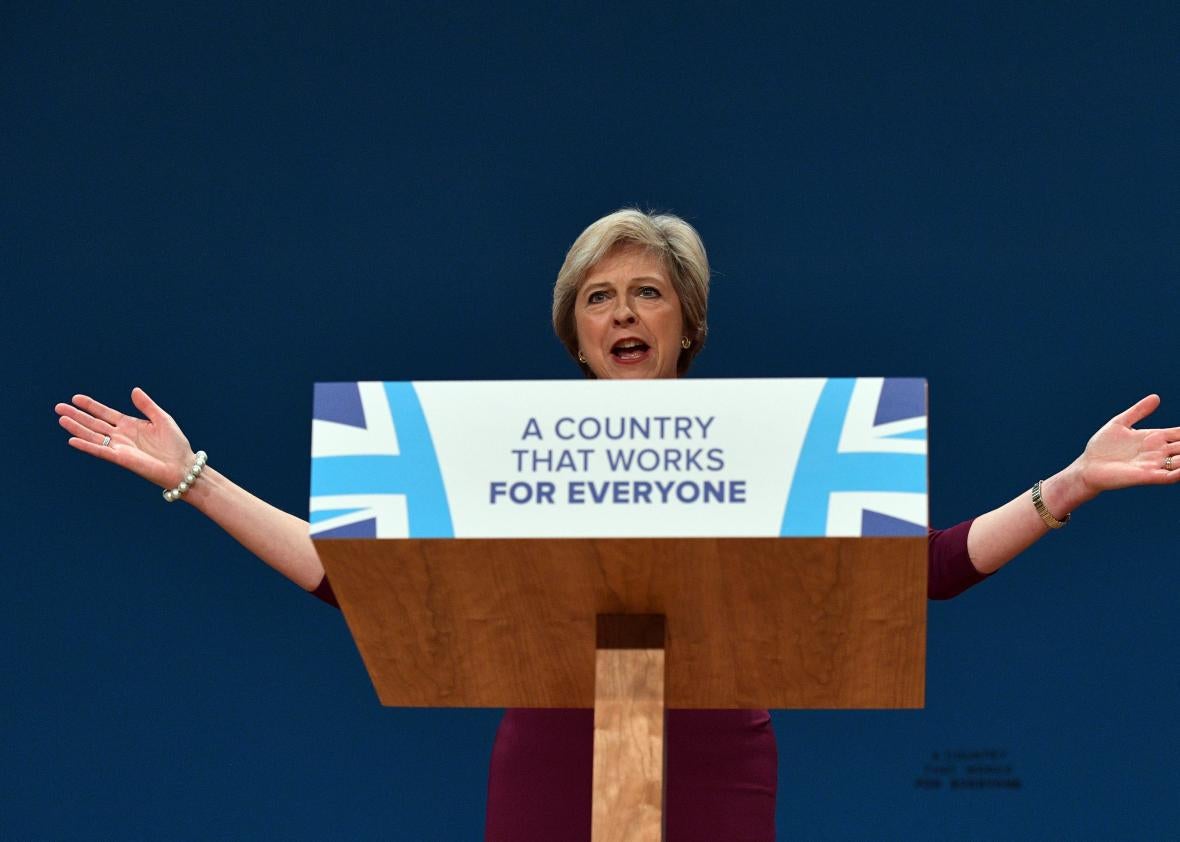After weeks of uncertainty, Britain is finally getting a little more clarity on what Brexit will look like. First, the timing: Prime Minister Theresa May announced this week that by the end of March, she will trigger Article 50 of the Lisbon Treaty, which governs membership in the EU. This will start a two-year countdown clock for Britain to negotiate a new economic and political relationship with Europe. In 2019, deal or no deal, Britain is out.
The other big question is what Britain wants its future relationship with the EU to be. There are things about EU membership that most Britons like—mainly British companies being able to easily sell and operate throughout the European market. There are, of course, also things they don’t like: workers from EU countries coming into Britain, and bureaucrats in Brussels having control over domestic regulations.
Brexit proponents like Foreign Minister Boris Johnson are still promising voters that Britain can have its cake and eat it too. (He literally said this.) But other EU governments are very unlikely to let Britain only keep the perks of EU membership without any of the obligations, which means that the British government has to decide what its priorities are.
May’s Conservatives, who had their party conference this week, are divided over what are being called the “hard Brexit” and “soft Brexit” scenarios. In a soft Brexit, Britain would prioritize trade and access to the common market, in exchange for giving up some control over immigration and keeping a whole lot of EU regulations. The Economist notes that non-EU countries Switzerland and Norway have this sort of arrangement already. Under a hard Brexit, however, Britain would withdraw entirely, regaining full control over its borders and domestic regulations but losing tariff-free access to the market that accounts for 44 percent of its exports.
In her heart of hearts, May—who opposed Brexit in the first place—is probably in the soft camp, but it was concerns over sovereignty and immigration that motivated pro-Brexit voters in the place. Which is why, in her speech to the party faithful this week, May said she would seek continued access to the EU market, but that the priority in Britain’s negotiations with Europe would be regaining “the freedom to make our own decisions on a whole host of different matters, from how we label our food to the way in which we choose to control immigration.”
A hard Brexit could threaten London’s status as a financial hub, as U.K.-based banks would no longer have the right to sell their services in any EU state without local licenses. According to the Wall Street Journal, at least one Japanese bank started contacting other European cities about relocating its London unit immediately after May’s speech.
The conventional wisdom right now is that British voters have decided they don’t care about the whining of City bankers. There was also controversy this week around a plan from the Home Office that would force companies to disclose what percentage of their workforce is non-British, another sign that this government sees anti-immigrant sentiment as outweighing concern about the economy. I’m not so sure. A recent poll shows a narrow majority of Britons (the same 52–48 split as the Brexit vote in fact) favor a soft Brexit that includes concessions on immigration, and most people believe those EU immigrants already in the U.K. should be allowed to stay. Moreover, the pro-Brexit politicians weren’t exactly straight with voters about what the economic consequences of this would be.
In any case, this thing is moving forward. And while May rejected the hard/soft choice as “simply a false dichotomy,” (those identified as “hard Brexiteers” generally don’t like the term) her speech was widely interpreted as a sign that Britain is headed down the hard route. Underlining this, German Chancellor Angela Merkel responded to May’s speech by saying that access to the common market is predicated on acceptance of the EU’s “basic principles,” including the free movement of people. In other words, no special treatment.
